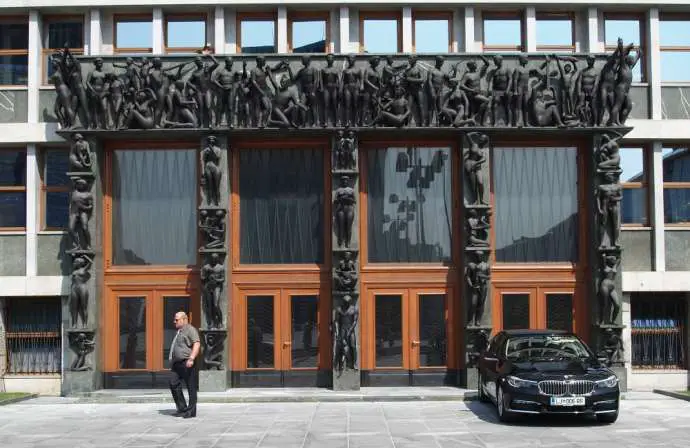STA, 10 August 2019 - Slovenia is in for a hectic autumn as PM Marjan Šarec intends to peg the vote on the crucial 2020-2021 budget bills to a confidence vote, with the opposition Left saying it could withhold support for his minority government. But analysts see no reason for a no-confidence vote, which would trigger an early election that practically no party wants.
The Left, which the opposition considers a radical leftist party, has accused the government of "rightist policies", urging it to drop them if it wants to continue counting on its support.
But it is particularly unhappy with the slow fulfilment of commitments the cabinet made in an agreement with it featuring 13 projects the Left wants implemented.
By tying the budget and confidence votes, Šarec would test the coalition's trust and the support of the Left, which has had only one of the planned projects realised.
Without the Left, the government does not have an absolute majority in parliament, which is needed if legislation is vetoed by the upper chamber and put to a re-vote in the lower chamber.
If the Left indeed withdraws support, Šarec could potentially seek new alliances with the National Party (SNS), which voted for the revised 2019 budget, or with New Slovenia (NSi).
The conservative NSi has recently said it would be willing to work closer with the government on a project-to-project basis, an option also seen as viable by analysts.
Andraž Zorko from pollster Valicon believes the confidence vote resulting in no-confidence is highly unlikely, doubting Šarec would dare to propose it if there were any signs he could lose the vote.
"There is no reason for anyone to vote for the government's dismissal because there are only two scenarios after it: an alternative, centre-right government, which is rather unlikely, or an election."
Judging by opinion polls, Šarec is perhaps the only one interested in an early election, according to Zorko, whereas Alem Maksuit believes no matter how strong Šarec feels, he would not risk toppling his own government.
Zorko notes the prime minister's LMŠ party does better in opinion polls than in elections, saying "it enjoyed 26% in polls in February, but won only around 12% in the EU vote four months later".
Compared to the many parties that have emerged over the past decade in Slovenia, Zorko considers Šarec a survivor, with his "LMŠ doing everything smoothly for now".
"Šarec is a nice combination of a new politician with elements of populism adapted to the Slovenian milieu, which is more left than right, although he is faring well on both sides."
Maksuti from the Institute for Political Management says Šarec is using his polls-based legitimacy to exert pressure on his partners, "but things can change very quickly in Slovenia".
Noting an early election is in no party's interest at the moment, Maksuti believes "the only possible change is the NSi replacing the Left in cooperation with the government".
The NSi "is willing to compromise because it is aware how politics works and because it is not that radical", he says.
Zorko, on the other hand, sees the NSi's willingness to support the government "to distance itself from the Democrats (SDS) and narrow the Left's wiggle room".
Maksuti says the Left will most probably extend the period in which it expects its projects to be implemented, or terminate the pact with the government.
But he believes the Left is actually harming itself by further cooperating with the government.
Zorko does not expect the Left to change its tactics either, noting it is quite successful in navigating between the government and its electorate's (dis)satisfaction.
Another change to the political relations could come in October as the Modern Centre Party (SMC), the second strongest coalition party, changes leadership.
Miro Cerar, the SMC's leader and founder, said he would no longer stand for re-election after the party fared poorly in May's European elections.
He is expected to be replaced at a congress by Economy Minister Zdravko Počivalšek, a member of the party's executive council.
Zorko has just recently told the STA that with Počivalšek as SMC leader, many cards are open because he is in a way a new face, somewhat peculiar and strong-willed.
However, if the SMC, which lacks a clear ideological profile, positions itself slightly more to the right economically-wise, this could well win it new votes.
Maksuti has begged to differ, asserting the SMC, which was set up just before the 2014 election, which it won in a landslide, is a political corpse and Počivalšek politically illiterate.






